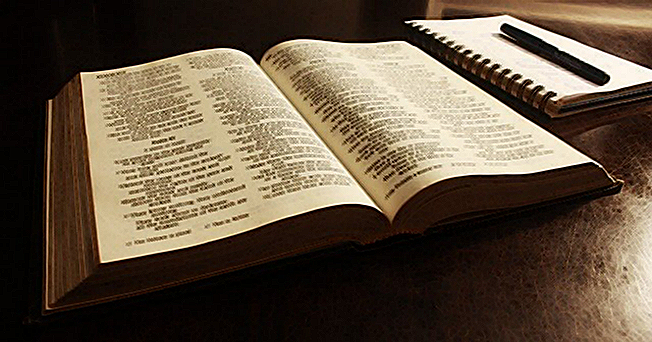American Standard Version with Notes

This is an ongoing process. Please check back for regular updates.
An * beside a note indicates it was taken from a bible student source.
Most scripture links are connected to Biblehub.com.
The following resources were used for research:
Verse |
Notes |
| 1. Now Sarai, Abram's wife, bare him no children: and she had a handmaid, an Egyptian, whose name was Hagar. | HAGAR From Strong's 1904, hagar, unknown; Abraim Publications, rom a verb הגר (hagar), to flee or from (1) ה (ha), "the" or "for," and (2) the verb גרר (garar), to drag out or away or from the Persian/ Greek verb αγγαρευω (aggareuo), to press into service. The Egyptian slave of Sarah, who becomes Abraham's concubine at Sarah's request after having no children. When Hagar became pregnant she despised Sarah. Sarah became angry and confronted Abraham about Hagar's behavior. When Abraham permitted Sarah to correct Hagar's behavior. Hagar fled toward Egypt. The angel of the Lord instructs her to return and submit herself under the hands of her mistress. The angel also gave a prophecy respecting her unborn child. She gave birth to Ishmael, and Abraham was then eighty-six years old. When Ishmael was caught by Sarah making sport of her young son Isaac at the festival of his weaning, Sarah demanded the expulsion of Hagar and her son. Hagar and her son were sent away. In despair because of lack of water, an angel again appeared to her, revealed water, and renews the former promises to her. (Genesis 21:9-21) St. Paul, (Galatians 4:25) refers to her as the type of the old covenant of the law.
We are referred by Peter to Sarah, Abraham's wife, as a proper example of a wife's submission. But notice that, while she did reverence Abraham, as indicated by her calling him lord (Gen. 18:12), and while she, no doubt cheerfully, left her native land and friends and, in obedience to the command of God to her husband, accompanied him in his sojournings to the land of promise, with him walking by faith, we see that her submission was not a blind submission which refrained from expressing a thought which differed from Abraham's; nor was there anything in Abraham's conduct toward her which indicated such expectation on his part. She was evidently a thinking woman: she believed the promise of God that they should have a son through whom the blessing of the world should come; and when nature seemed to fail she suggested a way in which the promise might be fulfilled. And when Hagar became boastful and despised her mistress, she complained to Abraham and claimed that the fault was partly his. She wanted no division of his heart with her servant. Abraham's reply assured her that there was no such division, that her maid was still under her control. And her subsequent course with Hagar was a discipline to correct her boastfulness and improper attitude toward her mistress. And when Hagar fled from her, the angel of the Lord met her and told her to return and submit herself to her mistress, which she did, and was evidently received and restored by Sarah.—Gen. 16. On another occasion, after Isaac was born and the two boys were growing up together, the rivalry of Hagar again cropped out in Ishmael, who persecuted Isaac, Sarah's son. (Gen. 21:9; Gal. 4:29.) And again Sarah was grieved and appealed to Abraham to cast out the bond woman and her son; for she feared Abraham would make him heir with her son, which would not have been in accordance with the promise of God. (Gen. 21:10-12; 15:4; 17:17-19.) This, Abraham was not inclined to do, and as Sarah urged her claim, we read that "the thing was very grievous in Abraham's sight because of his son," Ishmael, until God indicated his will in the matter. This is further shown in this case to which Peter refers us for example, saying (to those who are similarly subject. to their husbands) "whose daughters ye are, doing good, and not fearing any terror"—any evil results. (1 Pet. 3:6.) The submission counselled by the apostles is a reasonable submission, compatible with a moderate, modest expression of the wife's sentiments and a proper consideration of the same by the husband, as in the case of faithful Abraham, who was by no means led about by the whims of a foolish wife, but who, in a reasonable consideration of his wife's sentiments and trials, waited to know the will of the Lord before granting her wishes. From the above considerations it is obvious that the human relationship of husband and wife, which the Lord points out as an illustration of the beautiful relationship of Himself and the Church, is by no means an occasion for the exhibition of either tyranny or servility on the part of either party. And wherever such conditions do exist, they are out of the divine order. The Lord set his seal of approval upon marriage when he instituted the relationship and blessed the union of the first pair in Eden; and when, as king and queen—head and help-mate—he made them joint-inheritors of the earthly dominion (Gen. 1:27,28); and later, when he commanded children to honor and obey both parents.—Exod. 20:12; Eph. 6:1,2. The curse of sin has rested heavily upon woman, as well as upon man; but the Christian man who would seek to bind the curse upon his wife, instead of endeavoring to lighten it and to help her bear it, sadly lacks the spirit of [R1553 : page 212] the heavenly Bridegroom. And so also the Christian wife: if she in selfishness demands of her husband an undue measure of the sweat of face entailed by the curse, instead of seeking to lighten his toil and share his cares, she sadly lacks that spirit which characterizes the true bride of Christ. It was sin that entailed the curse upon our race; but, as we strive against sin and aspire toward righteousness and God-likeness, we mitigate the evils of the curse for each other. And, thank God, the time is now fast approaching when "there shall be no more curse," and when, "the throne of God and of the Lamb" being established in the earth, the spirit of love, [R1554 : page 212] so beautifully exemplified between Christ and the exalted Church, will be gloriously reproduced on the earthly plane also; when, the curse being entirely lifted, woman will find her natural and honored position at the side of her noble husband, as his worthy helper and companion—"the glory of the man," as Paul describes her, and an "heir together with him of the grace of life," as he also appoints her, and as beautifully foreshown in the typical restitution of Job (Job 42:15), when he gave his daughters inheritance among their brethren. R1548 |
2. And Sarai, said unto Abram, Behold now, the LORD hath restrained me from bearing: I pray thee, go in unto my maid; it may be that I may obtain children by her. And Abram hearkened to the voice of Sarai. |
|
3. And Sarai, Abram's wife, took Hagar the Egyptian, her handmaid, after Abram had dwelt ten years in the land of Canaan, and gave her to Abram her husband to be his wife.
|
|
4. And he went in unto Hagar, and she conceived: and when she saw that she had conceived, her mistress was despised in her eyes. |
Of a very different character indeed was Isaac's elder half-brother, Ishmael—domineering, tyrannical. Not amenable to restraints and reproofs, he made life miserable for Isaac until Abraham, in harmony with the Lord's direction, treated him as an incorrigible, and refused to him and his mother the privileges of the home. (Gen. 21:12.) We are informed that Hagar also had a sneering spirit. (Gen. 16:4.) Separation was not only wise but necessary to the type, as St. Paul shows. Ishmael was 13 years old, or 18 if, as some think, this occurred in Isaac's fifth year. We are to remember the Apostle's explanation of this incident, that it was typical: that Hagar and her son Ishmael represented the Law Covenant and the Jews, while Sarah and her son represented the original Abrahamic Covenant and the Church of this Gospel age. The persecution of the Isaac class at the first advent was very manifest, and as a result the Ishmael class, the Jews, have been cast off from divine favor and have had a [R3953 : page 72] time of trouble ever since. It is with pleasure that we see in the type, as well as in the direct statement of the Apostle, that the time will come when God's favor shall return to them and they shall return to the Lord, and he shall abundantly have mercy upon them, and we rejoice that this time is now near at hand, even at the door. R3952
|
| 5. And Sarai, said unto Abram, My wrong be upon thee: I gave my handmaid into they bosom; and when she saw that she had conceived, I was despised in her eyes: Jehovah judge between me and thee. |
|
6. But Abram said unto Sarai,, Behold, thy maid is in thy hand; do to her that which is good in thine eyes. And Sarai dealt hardly with her, and she fled from her face.
|
|
7. And the angel of Jehovah found her by a fountain of water in the wilderness, by the fountain in the way to Shur. |
SHUR From Strong's 7792, a wall, from 7793, shur, from 7794, shor, a head of cattle. Abraim Publications, from the verb שור (shur), to be raised. A desert East of the Gulf of Suez, which some translate as wall, perhaps because the mountain wall of the Tih plateau is visible from the shore plains. Here Hagar ran away from her mistress Sarah. Abraham also lived "between Kadesh and Shur" (Genesis 20:1). It is opposite Egypt (1 Samuel 15:7) on the way to Assyria. After crossing the Red Sea the Hebrews entered the desert of Shur (Exodus 15:22), which extended southward a distance of three days' journey. It is identified as being East of the Red Sea and the Bitter Lakes. Shur; Map of Shur; Desert of Shur photo
|
8. And he said, Hagar, Sarai,'s handmaid, whence camest thou? and whither goest thou? And she said, I am fleeing from the face of my mistress Sarai.
|
|
| 9. And the angel of Jehovah said unto her, Return to thy mistress, and submit thyself under her hands. |
|
| 10. And the angel of Jehovah said unto her, I will greatly multiply thy seed, that it shall not be numbered for multitude. |
|
| 11. And the angel of Jehovah said unto her, Behold, thou art with child, and shalt bear a son; and thou shalt call his name Ishmael, because Jehovah hath heard thy affliction. | ISHMAEL 6 names in the Bible From Strong's 3458, Yishmael, God hears, from 8085, shama, to hear, and 410, el, god or gods. The first born son of Abraham by Hagar, his Egyptian concubine. He was bornin the plain of Mamre. He was circumcised at thirteen years of age. (Genesis 17:26) At the feast in celebration of Isacc's weaning, Ishmael mocked his half-brother. Sarah urged Abraham to cast him and his mother out. Comforted by the renewal of God's promise to make of Ishmael a great nation, Abraham sent them away. His mother found Ishmael an Egyptian wife. (Genesis 21:9-21) This wife of Ishmael was the mother of the twelve sons and one daughter. He was present with Isaac at the burial of Abraham. He died at the age of 137 years. (Genesis 25:17,18) The sons of Ishmael peopled the north and west of the Arabian peninsula, and eventually formed the chief element of the Arab nation, the wandering Bedouin tribes. They are now mostly Mohammedans who look to him as their spiritual father, as the Jews look to Abraham. The term "Ishmaelite" occur on three occasions: (Genesis 37:25,27,28; 39:1; Judges 8:24; Psalms 83:6) 2. One of the sons of Azel, a descendant of Saul through Meribbaal or Mephibosheth. (1 Chronicles 8:38; 9:44) 3. The father of Zebadiah, of Judah. (2 Chronicles 19:11) 4. The son of Jehohanan; one of the captains of hundreds who assisted Jehoiada in restoring Joash to the throne. (2 Chronicles 23:1) 5. A priest of the Bene-Pashur, who relinquished his foreign wife. (Ezra 10:22) 6. The son of Nethaniah; (Jeremiah 40:7; Jeremiah 41:16) During the siege of the city of Jerusalem, he had fled across the Jordan where he found a refuge at the court of Baalis. Ishmael's intention was to kill the governor left by the king of Babylon and assume his position. The governor Gedaliah was warned but chose to ignore the warning. (Jeremiah 41:1) Ishmael murdered Gedaliah, his attendants, and some Chaldean soldiers. Eighty Jews, bringing offerings to the ruins of the temple were attacked, only ten escaped by offering a heavy ransom for their lives. He carried off the daughters of King Zedekiah, who had been sent there by Nebuchadnezzar for safety, with their eunuchs and their Chaldean guard, (Jeremiah 41:10,16) and all the people of the town, and made off with his prisoners to the country of the Ammonites. Ishmael was pursued and attacked, but he escaped to the Ammonites.
The servant Hagar was elected to be a type of the Law Covenant, and her son Ishmael a type of the natural Israelites, who, though brought forth first, should not be a joint-heir with Isaac, the son of promise. F170 |
| 12. And he shall be [as] a wild ass among men; his hand [shall be] against every man, and every man's hand against him; and he shall dwell over against all his brethren. | |
13. And she called the name of Jehovah that spake unto her, Thou art a God that seeth: for she said, Have I even here looked after him that seeth me? |
|
| 14. Wherefore the well was called Beer-lahai-roi; behold, it is between Kadesh and Bered. | BEER-LAHAI-ROI From Strong's 883, beer lachay roi, well of the living One that sees me, from 875, beer, a well, pit and from 2416, chay, age, and from 7203, roeh, a seer. The fountain in the way to Shur where Hagar was spoken to by an angel. Here Isaac dwelt (Genesis 16:7; Genesis 24:62; Genesis 25:11). It is identified with Ain Muweileh, south-west of Beersheba, 12 miles W. from Kadesh-barnea.
BERED 2 names in the Bible From Strong's 1260, bered, from 1259, barad, hail. A town in the South of Israel, the desert of Shur. 2. A son of Shuthelah, a descendant of Ephraim (1 Chronicles 7:20), may be the same as Becher in (Numbers 26:35).
|
15. And Hagar bare Abram a son: and Abram called the name of his son, whom Hagar bare, Ishmael.
|
|
16. And Abram was fourscore and six years old, when Hagar bare Ishmael to Abram.
|
|

